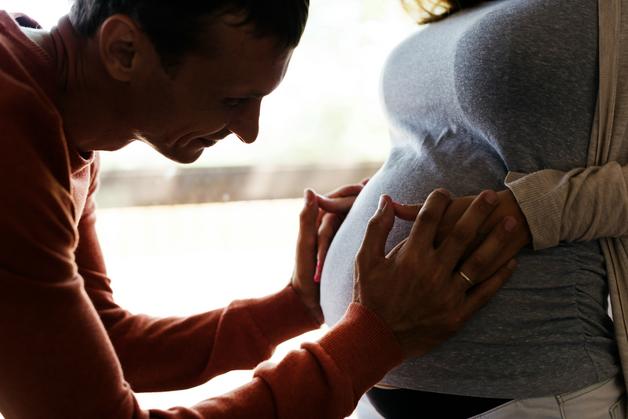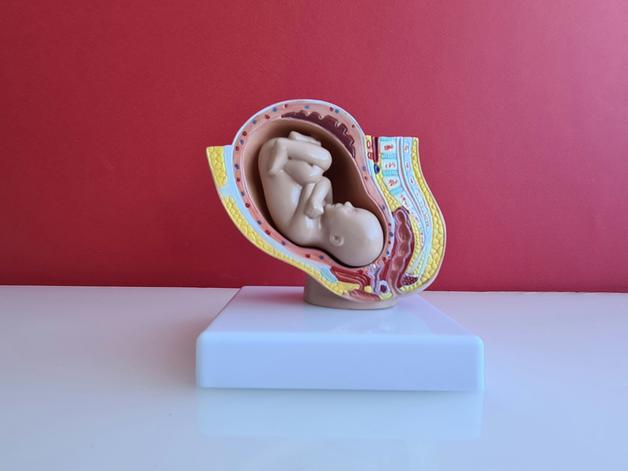Pregnancy unfolds as a distinctly transformative experience, but it can also bring unexpected physical sensations—some unsettling, others outright alarming. Among these, kidney pain during pregnancy is a common source of anxiety and confusion. Is this sharp ache in your lower back something to ignore, or does it signal a deeper concern? Parents navigating pregnancy often face a cascade of questions, especially when pain arise unexpectedly around the kidneys. Frequent urination, back discomfort, or a strange, gnawing pain at waist level—when combined with fatigue or fever—can easily blur the boundaries between common changes and something requiring immediate attention. Let’s untangle these symptoms, illuminate the medical realities behind kidney pain during pregnancy, and explore concrete steps to manage, relieve, and—most importantly—safeguard your wellbeing and that of your baby.
Understanding Kidney Pain During Pregnancy: Spotting the Difference
You might notice a distinct ache at the side of your lower back, occasionally sharp, unrelenting even when changing position. Unlike the diffuse, aching discomfort caused by postural shifts or muscle fatigue that so often comes with pregnancy, kidney pain during pregnancy tends to be concentrated, sometimes described as stabbing, colicky, or throbbing. Why does this matter? Because the location and quality of kidney pain set it apart from benign backaches commonly encountered as your body shifts and grows.
How can you tell what you’re dealing with? Watch for key characteristics:
- Location: Usually near the flank or just below the ribs, often one-sided.
- Radiation: Can spread toward the groin or lower abdomen, sometimes wrapping around and sending hot, burning currents downward.
- Lack of response to rest: Unlike muscle pain, kidney pain tends not to ease with bed rest or position changes.
Parents frequently wonder—when should concern mount? The answer: promptly, if kidney pain during pregnancy is intense, persistent, or comes with fever, chills, dysuria (pain on urination), blood in urine, hematuria, or general malaise. Unexplained swelling, dark, cloudy, or foul-smelling urine are all signals to reach out to a healthcare provider quickly. Unlike everyday back strain, kidney pain during pregnancy can escalate rapidly and, if left unchecked, has direct repercussions on maternal and fetal health.
Common Medical Causes and Risk Amplifiers
Why does kidney pain during pregnancy even happen? The growing uterus begins to press on the urinary tract, impeding urine flow. This simple mechanical reality, paired with increased glomerular filtration rate (your kidneys working overtime) and hormonal changes—specifically the relaxing effects of progesterone—set the stage for complications.
Well-established triggers include:
- Urinary tract infection (UTI): The most common culprit. Pregnancy amplifies susceptibility to bacterial invaders, which can ascend from bladder to kidneys (pyelonephritis). Expect symptoms like fever, burning urination, and intense back pain.
- Kidney stones: Notoriously painful, these can form due to shifts in calcium metabolism, dehydration, or urinary stasis. Migration of a stone may provoke sudden, excruciating kidney pain during pregnancy—occasionally accompanied by nausea or vomiting.
- Gestational hydronephrosis: The kidneys themselves may become swollen (especially on the right side) as urine struggles to flow past the compressed tract.
- Less commonly, blood clots, kidney cysts, or the aftereffects of past trauma can all masquerade as kidney pain; each scenario demands medical evaluation.
When it comes to risk factors, history matters. Parents with chronic kidney disease, prior urinary tract issues, diabetes mellitus, or poor hydration are particularly vulnerable. A sedentary lifestyle, obesity, and even certain nutritional deficits can tip the scales toward trouble. This makes honest, transparent communication with your provider essential—what has occurred in the past can influence today’s medical strategy.
Recognizing Symptoms and Knowing When to Seek Help
Is this muscle pain or a deeper issue? Here’s how to differentiate:
- Muscle back pain: Typically diffuse, worsens with movement, improves with heat or gentle stretching—rarely linked to systemic upset.
- Kidney pain during pregnancy: Distinctly sharp, burning, often one-sided, and accompanied by signs like fever, polyuria (frequent urination), vomiting, or malaise. Swelling, tenderness over the kidney, and visible blood in urine warrant urgent action.
What deserves immediate attention?
- Severe, constant pain; high fever (suggesting systemic infection); repeated vomiting; or any sign of urinary discomfort.
- Blood or significant cloudiness in urine, particularly dark shades signaling concentrated urine.
- Generalized weakness or swelling—especially concerning if it develops quickly.
Parents shouldn’t hesitate to consult a professional—early intervention can make all the difference.
Medical Evaluation: Tests and What to Expect
Evaluation begins with a comprehensive medical history and targeted examination. Expect questions about location, nature, and duration of kidney pain during pregnancy, as well as coexisting symptoms. Standard investigations include:
- Urinalysis for detecting infection, blood, or crystals.
- Urine cultures to identify specific bacteria, guiding antibiotic selection.
- Renal function blood tests.
- Kidney ultrasound (the imaging tool of choice, thanks to its safety and avoidance of radiation during pregnancy).
MRI may be proposed for complicated cases, but exposure to X-rays or CT scans is generally avoided. Medical teams synthesize all findings—your described experience, physical exam results, and lab tests—to tailor the approach and ensure maternal and fetal safety.
Safe Treatment Approaches Tailored to Pregnancy
Why is specialized care vital? Because both mother and baby’s wellbeing are deeply interwoven during pregnancy. Treatments vary according to diagnosis:
- For urinary tract infections, antibiotics such as amoxicillin, cephalosporins, or—when indicated—nitrofurantoin, are selected with an eye toward both efficacy and safety in pregnancy.
- Pain management: Acetaminophen remains the preferred agent (NSAIDs like ibuprofen are usually avoided, especially later in pregnancy due to fetal risks).
- Hydration: Water intake (aim for 1.5 to 2 liters daily, unless told otherwise) supports kidney function and helps flush infectious agents or tiny stones.
- Physical activity: Gentle walking, prenatal yoga, or aquatic exercise reduces mechanical strain while assisting overall circulation.
- Diet: Modifying calcium or salt intake (as advised) and maintaining diverse nutrition can reduce the likelihood of stone formation or infection.
- In rare cases—where an obstructing stone or significant hydronephrosis threatens health—a surgical procedure or insertion of a ureteral stent might be considered. Every intervention is carefully weighed with fetal safety in mind.
Practical home strategies: Avoid holding urine for long periods; opt for regular, complete bladder emptying. Practice scrupulous perineal hygiene (wiping front to back), wear loose-fitting cotton underwear, and consider using a support belt to relieve mechanical back strain. Heat packs, gentle massage, and medical-approved therapies like osteopathy may provide extra comfort—but always discuss new treatments with your provider first.
Prevention: Everyday Routines for Back and Kidney Health
Are there ways to minimize risk in advance? Absolutely. Here’s what research and clinical expertise recommend:
- Regular hydration ensures urine remains diluted, limiting infection risk and supporting the workhorse kidneys.
- Urinary hygiene and prompt urination (especially after intercourse) prevents bacterial buildup.
- Active posture care: Use supportive pillows, stand straight (but not rigid), and avoid overextending the lower back.
- Movement matters: Even a gentle walk or stretching can promote muscle balance and help redistribute weight.
- Mindful attention: Parents who quickly recognize fever, hematuria, or odd malaise and act by seeking help truly optimize both their own health and that of the fetus.
- Continued medical follow-up should be embraced, not feared. Regular urine testing, blood pressure checks, and ultrasound screenings offer early glimpses into emerging issues and enable rapid response.
Ongoing Monitoring: Protecting Maternal and Fetal Health
Pregnancy with a background risk—such as chronic kidney disease, diabetes, hypertension, or a previous episode of pyelonephritis—warrants closer attention. Most parents, however, will simply require routine screening. Checklist-style monitoring of blood pressure, urine composition, and kidney structure ensures small issues are caught before becoming serious.
Some situations, though, demand more: if you’ve experienced prior complications, expect tighter surveillance, amplified dialogue with your care team, and perhaps even referrals to specialists who can keep a watchful eye on both you and your growing baby.
What Happens if Kidney Pain is Overlooked?
Allowing kidney pain during pregnancy to persist unchecked raises risk of serious scenarios:
- Preterm labor: Particularly when infection (especially pyelonephritis) is present.
- Fetal growth restriction: Diminished placental blood flow caused by infection or kidney dysfunction can impair development.
- Maternal complications: These include acute kidney failure, blood infection (sepsis), or high blood pressure disorders such as preeclampsia.
- Long-term concerns: Repeated or severe episodes boost the likelihood of lasting kidney damage or chronic urinary tract issues, persisting long past delivery.
Early, decisive action—supported by medical professionals—significantly reduces these outcomes.
Living with Kidney Pain During Pregnancy: Emotional and Practical Support
Pain rarely exists in isolation. Emotional stress, worry about the baby, and questions about treatment safety often tag along. Gentle reassurance, clear information, and consistent support from partners, family, and healthcare professionals all foster resilience. Support groups or conversations with qualified counselors can further ease emotional burdens.
Rest remains a cherished ally. Deep breathing, hydration, and adherence to your healthcare provider’s guidance for pain control all nurture both mental and physical adaptation. Many parents find that structured preparation for labor and postpartum recovery, especially with a history of kidney concerns, soothes anxiety and anchors confidence.
Key Takeaways
- Kidney pain during pregnancy deserves prompt recognition—its symptoms and risks set it apart from routine aches. Never ignore fever, blood in urine, or escalating fatigue.
- Practical habits—hydration, good hygiene, posture management, and gentle movement—are powerful allies in both prevention and relief.
- Only pregnancy-friendly medications should be used; consult your provider before taking any drug or supplement.
- Consistent medical follow-up, with appropriate laboratory and imaging studies, protects both maternal and fetal wellbeing.
- Early engagement with specialists and clear, regular dialogue give families the best foundation for a healthy pregnancy.
- Compassionate resources and tailored advice are available—download the Heloa app for personalized guidance and free health questionnaires for your children.
- Every parent’s path is unique. Stay proactive, ask questions, and rely on informed, supportive care to navigate kidney pain during pregnancy with confidence and calm.
Questions Parents Ask
Can kidney pain during pregnancy affect my baby?
Kidney pain itself does not directly harm the baby, but the underlying cause can sometimes have an impact. Infections or untreated kidney issues, for example, may increase the risk of certain complications if they are not managed. Rassurez-vous, most issues, when identified early and treated with appropriate medical care, allow for a healthy pregnancy and birth. If you ever feel uncertain or concerned about kidney pain, do not hesitate to reach out for medical advice—your wellbeing and that of your baby are both important.
What can I do at home to ease mild kidney pain during pregnancy?
For mild discomfort, gentle and supportive measures can help. Try to rest in a comfortable position—sometimes lying on your side may relieve pressure. Staying hydrated and emptying your bladder regularly supports kidney function and comfort. Applying a warm (not hot) compress to your lower back can also offer some relief, but always check with your healthcare team before trying any new approaches. If the pain persists or worsens, or if new symptoms appear, contacting your care provider is always a safe choice.
Is it normal to have kidney pain after urinating while pregnant?
Some pregnant individuals may notice mild discomfort after urinating due to the physical changes of pregnancy. However, if kidney pain is persistent, sharp, or comes with burning during urination, blood in urine, or fever, this might indicate an infection or another concern. While minor discomfort can occasionally be a normal response, il importe de rester attentif à tout changement ou aggravation des symptômes. Seeking medical advice ensures prompt identification and management of any potential issues.










